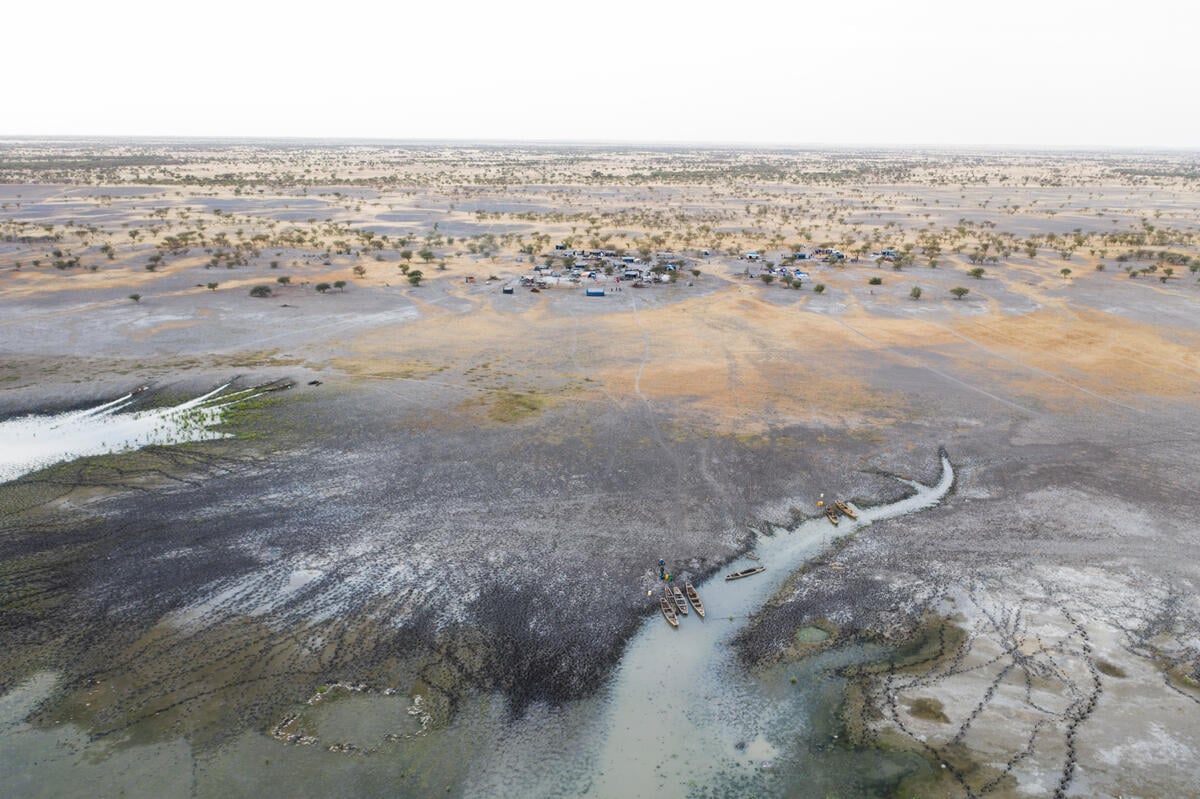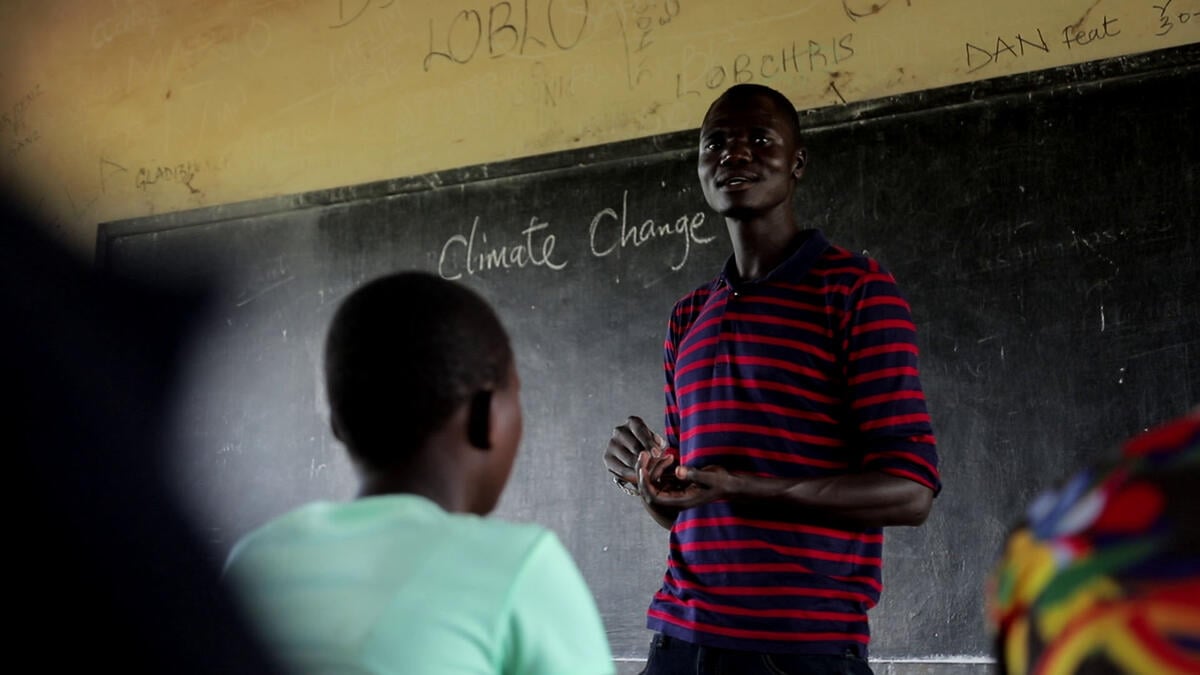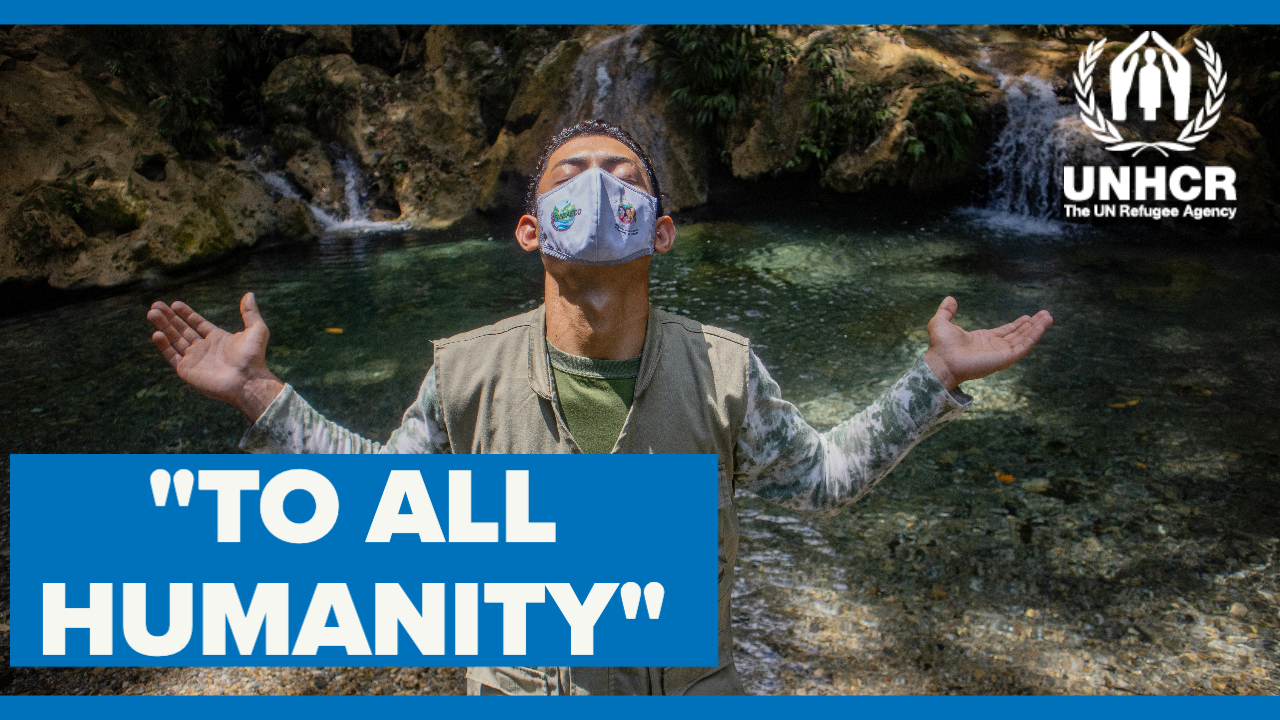One Macedonian town's waste is refugees' livelihood
One Macedonian town's waste is refugees' livelihood

SKOPJE, the Former Yugoslav Republic of Macedonia (UNHCR) - Nine years ago Stenkovec was home for a few months to more than 350,000 refugees from Kosovo; today it is a giant garbage dump.
But one man's waste is another's treasure and, for Zoran Dimov, this blot on the landscape is a business opportunity. The young Roma-Macedonian entrepreneur runs a recycling plant near the fly-blown piles of rubbish and his venture is supporting the UNHCR's self-reliance strategy by hiring Roma refugees.
UNHCR wants to wean refugees off aid dependency at a time of economic stagnation in the Former Yugoslav Republic of Macedonia. The unemployment rate in Macedonia is one of the highest in Europe, hitting 90 percent among the Roma community.
Dimov is doing his bit by recycling the tonnes of garbage discarded by the local community at Stenkovec - including hundreds of thousands of plastic bottles and bags - and strewn over a once pristine rural area north of the Macedonia capital, Skopje.
During a visit to Stenkovec and neighbouring Visbegovo on a foggy February morning, UNHCR staff from Skopje met Dimov at the plant, where some 20 Roma employees were collecting and sorting plastic bottles to be converted into plastic granules. Several were known to the visitors as refugees who had previously relied on the UN refugee agency for assistance.
"This is a difficult but honest way to make a living," said one of the refugee workers, who worked in a factory in Kosovo before fleeing to Macedonia in 1999. "But here, for several years, I was unable to support my family of seven and was totally dependent on UNHCR's assistance." He, his wife and their two sons have been working for Dimov for the past six months.
Dimov, who also owns a Roma TV station and has interests in other ventures, said business had been slow when he opened the Visbegovo plant in 2005. "I have slowly developed it and now we have 12 collection points in Skopje and 20 others around Macedonia. We are exporting [plastic granules] mainly to Italy."
The businessman, as a Roma and long-time supporter of UNHCR's work, is familiar with the problems of the refugees who cannot return to Kosovo from Macedonia under current conditions. That's why he wants to help.
"I am trying to employ several on each collective point and in the facility itself. I am also interested in employing some in administration, but training in computers, language and accountancy would be necessary. We will try to organize that together with UNHCR," he said.
The opening up of employment opportunities to the refugees was made possible by the government's adoption last September of new legislation on the employment and work of foreigners. "According to the provisions of this law, refugees can be legally employed and can support their families," said Carlos Maldonado, UNHCR's representative in Skopje.
"Now, it is time for the private companies, as part of their corporate responsibility, to develop strategies for further training, education and eventual employment of vulnerable groups such as Roma refugees," he added.
Dimov's policy of hiring Roma refugees fits in with UNHCR's self-reliance strategy. As part of this strategy, the office in Skopje is currently working with government ministries and civil society partners to gather data on the education levels, skills and training needs of refugees and asylum seekers in the country.
UNHCR will assess education facilities and courses that could be useful for refugees. The agency will also reach out to more local companies about the possibility of hiring refugees. Macedonia hosts some 1,860 refugees, most of them Roma from Kosovo.
By Aneta Galic in Skopje, former Yugoslav Republic of Macedonia








